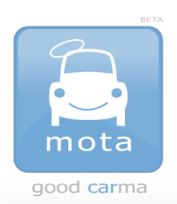
When sellers put up their cars, Mota asks them typical questions about the quality of their vehicles, like whether they’ve recently changed the tires or the brakes. Based on that information and guidebook pricing recommendations, Mota gives them an estimate of their car’s value. It also suggests outside parties that can check up on the car’s condition, where they can place the listing, and uses Facebook Connect to help sellers share the post with friends.
[aditude-amp id="flyingcarpet" targeting='{"env":"staging","page_type":"article","post_id":127535,"post_type":"story","post_chan":"none","tags":null,"ai":false,"category":"none","all_categories":"business,","session":"D"}']For the buyer, it suggests questions to ask and gives a link to Carfax, so they can check whether the vehicle’s been involved in an accident.
The company launched its product today at the TechCrunch50 conference in San Francisco.
AI Weekly
The must-read newsletter for AI and Big Data industry written by Khari Johnson, Kyle Wiggers, and Seth Colaner.
Included with VentureBeat Insider and VentureBeat VIP memberships.
Mota’s earns revenue through listing fees, lead generation, marketing and partnerships. When a buyer expresses interest in a new car, Mota can refer them to places like PepBoys to do a full check-up on the vehicle. They can also purchase warranties. The company also just announced a partnership with AutoTrader.com to promote its listings.
The so-called “lemons problem” is a textbook economics problem: The used car market is inefficient because of assymetrical information. Buyers don’t know how good a used car is — they suspect a seller might be trying to offload a piece of junk or a “lemon” so they tend to lowball their offers. Sellers, on the other hand, realize that if they have a great used car, they probably won’t be able to get what it’s worth because of the trust issue. So they self-select out of selling their cars. That results in more “lemons” permeating the used car market.
An expert selected to provide feedback about the company during the conference, Paul Graham of YCombinator, said it might be better to just focus one side instead of both the buy- and sell-side.
Another challenge is the number of competitors already in the market. About a year ago, a flood car-related Internet companies hit the market, mainly focused on the buyer side. There was vLane, Driverside and RepairPal — all companies focused on giving consumers more information about cars.
VentureBeat's mission is to be a digital town square for technical decision-makers to gain knowledge about transformative enterprise technology and transact. Learn More
